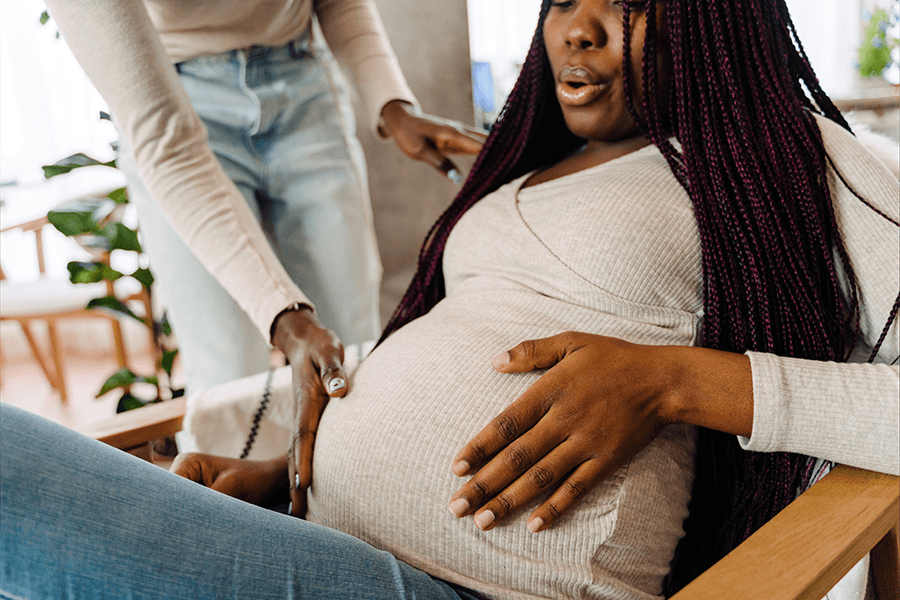Braxton Hicks are when your uterus contracts and relaxes. Sometimes they are known as false labor pains or practice contractions. Not all women will feel Braxton Hicks contractions. If you do, you’ll usually feel them during the second or third trimester.
Braxton Hicks are completely normal and many women experience them during pregnancy. Your midwife or OB will probably talk to you about them at some point, and you can ask questions at any time. Braxton hicks are different from labor contractions and you will learn more about this in your childbirth classes, but we have included some guidelines for when you may need to seek advice or support more urgently.
Pay attention to how your contractions feel
Contractions are completely normal after 37 weeks, but they can also be caused by, for example, stress, dehydration or a urinary tract infection. If you have contractions that disappear at rest and do not hurt, they are generally harmless. However, if you have more than four painful contractions in a day and they do not disappear with rest and hydration you should contact your midwife or OB. This is sometimes a sign of premature labor.
Towards the end of the pregnancy around 37 weeks, you can experience more frequent uterine contractions. This is the body's way of preparing for birth. These contractions usually increase in the frequency and intensity as you get closer to your labor day. Over a course of a few hours or a few days, these contractions can cause change in your cervix and put you into labor. Ask your health care provider the proper procedure to notify them before going to the hospital.
If you have a planned elective cesarean section and start to have contractions, do not hesitate to contact your OB or midwife for advice, as they will often wish you to come into the hospital to be assessed. This may mean having your scheduled cesarean section sooner than planned.
If you have a planned c-section
If you have a planned elective cesarean section and start to have contractions, do not hesitate to contact your OB or midwife for advice, as they will often wish you to come into the hospital to be assessed. This may mean having your scheduled cesarean section sooner than planned.
